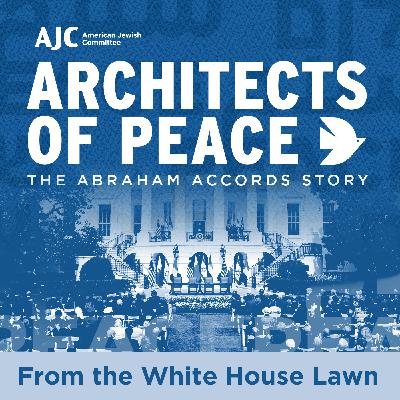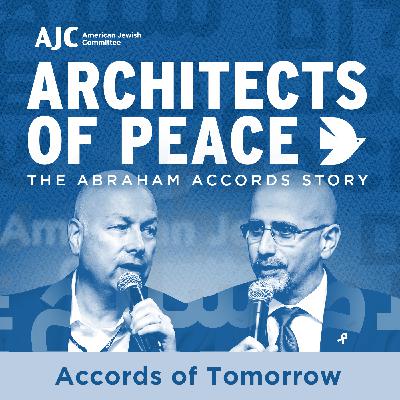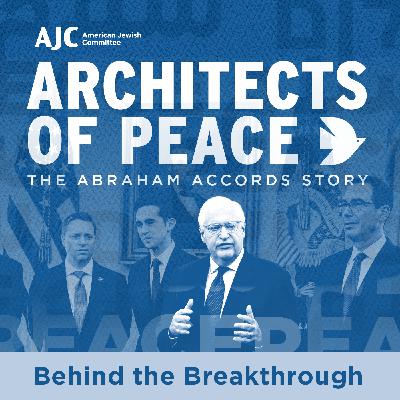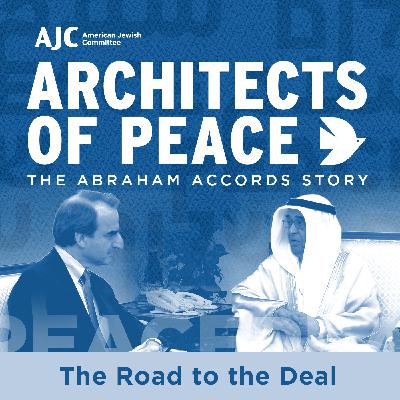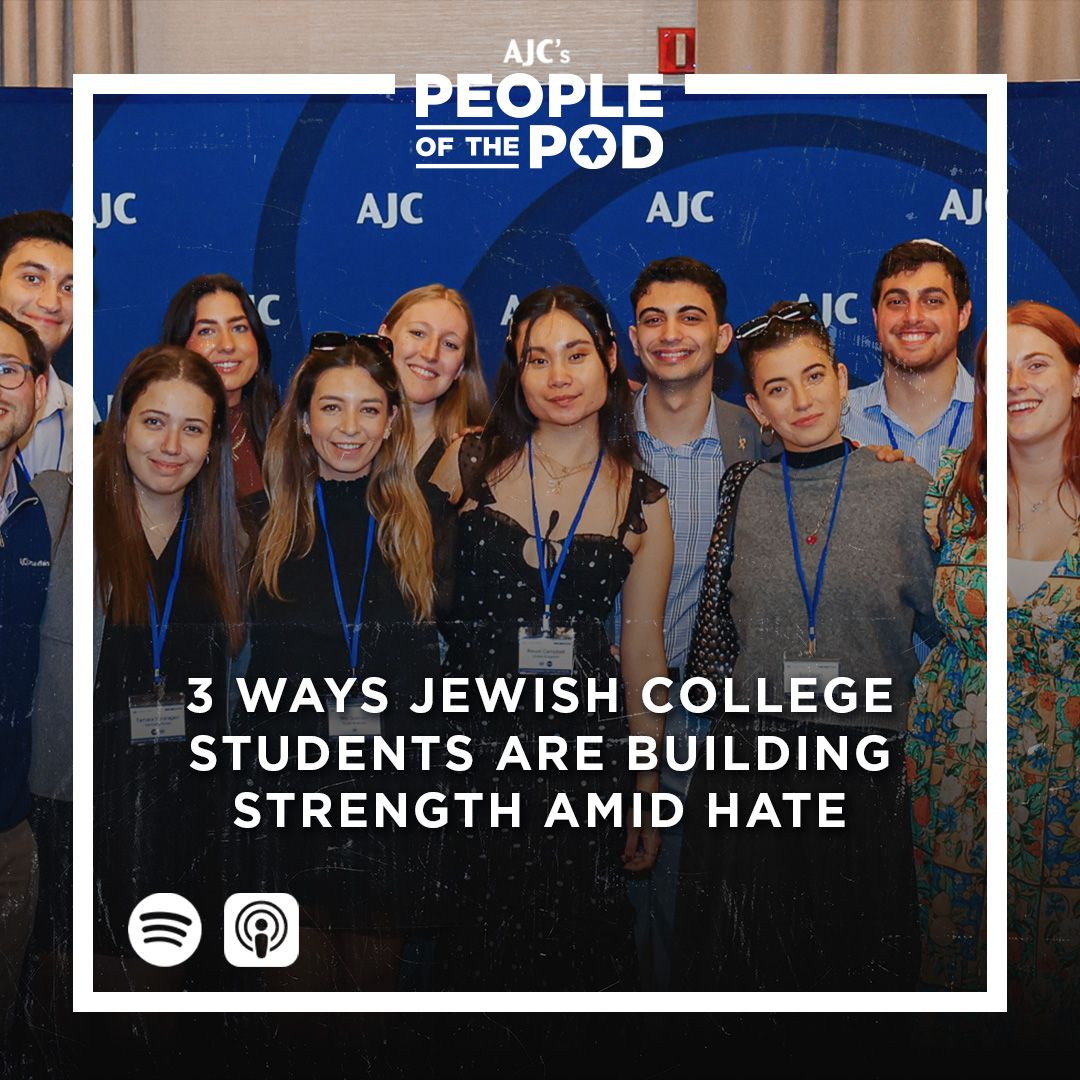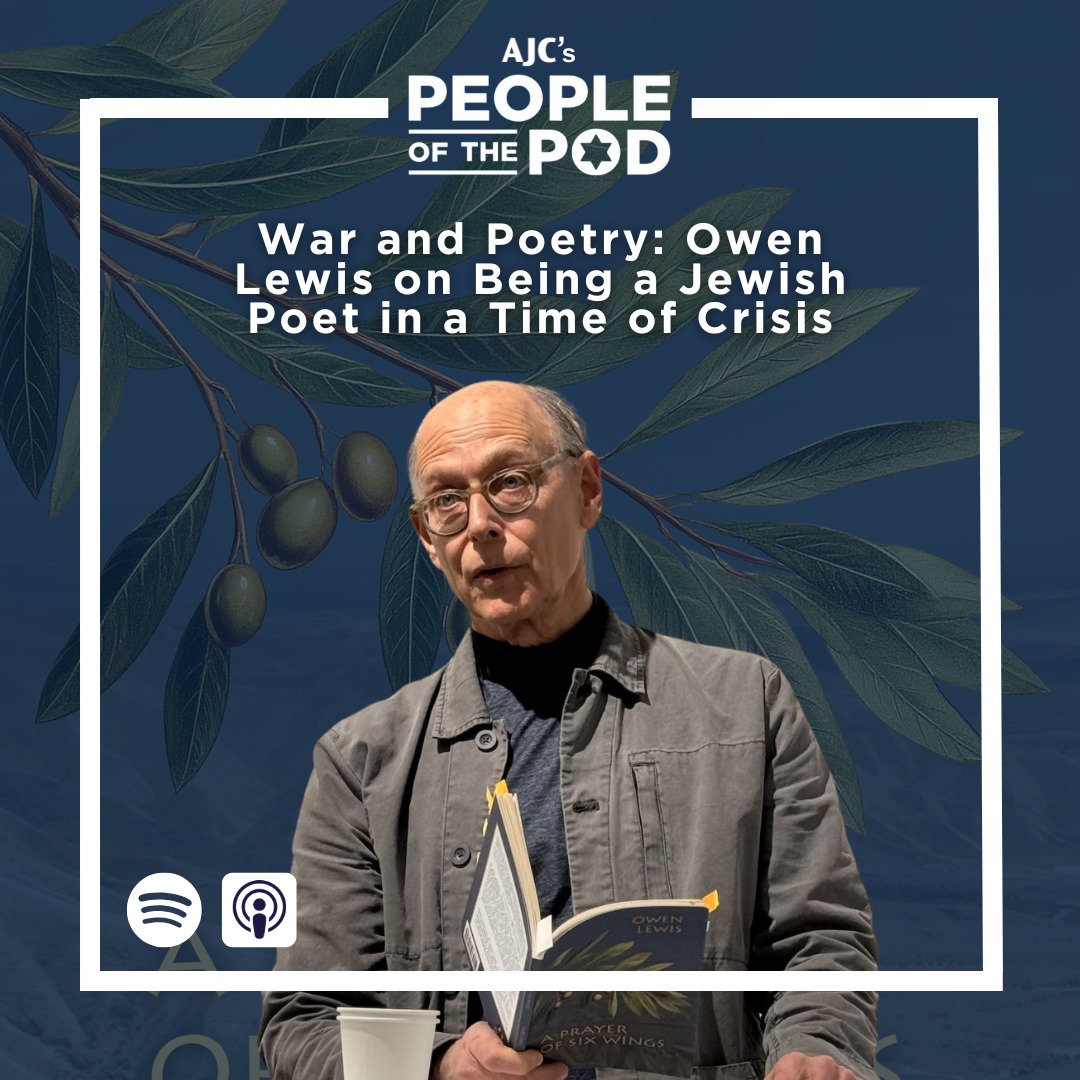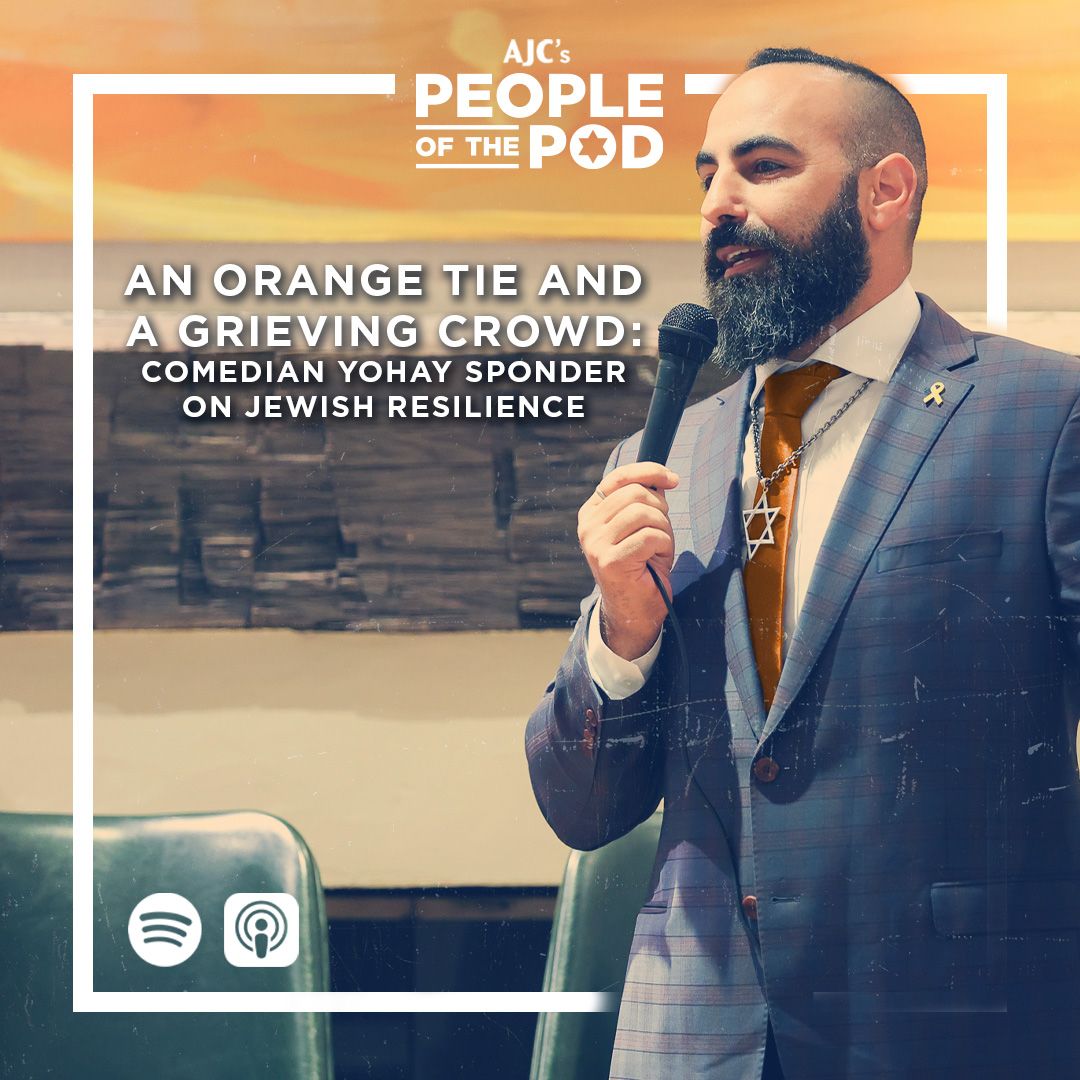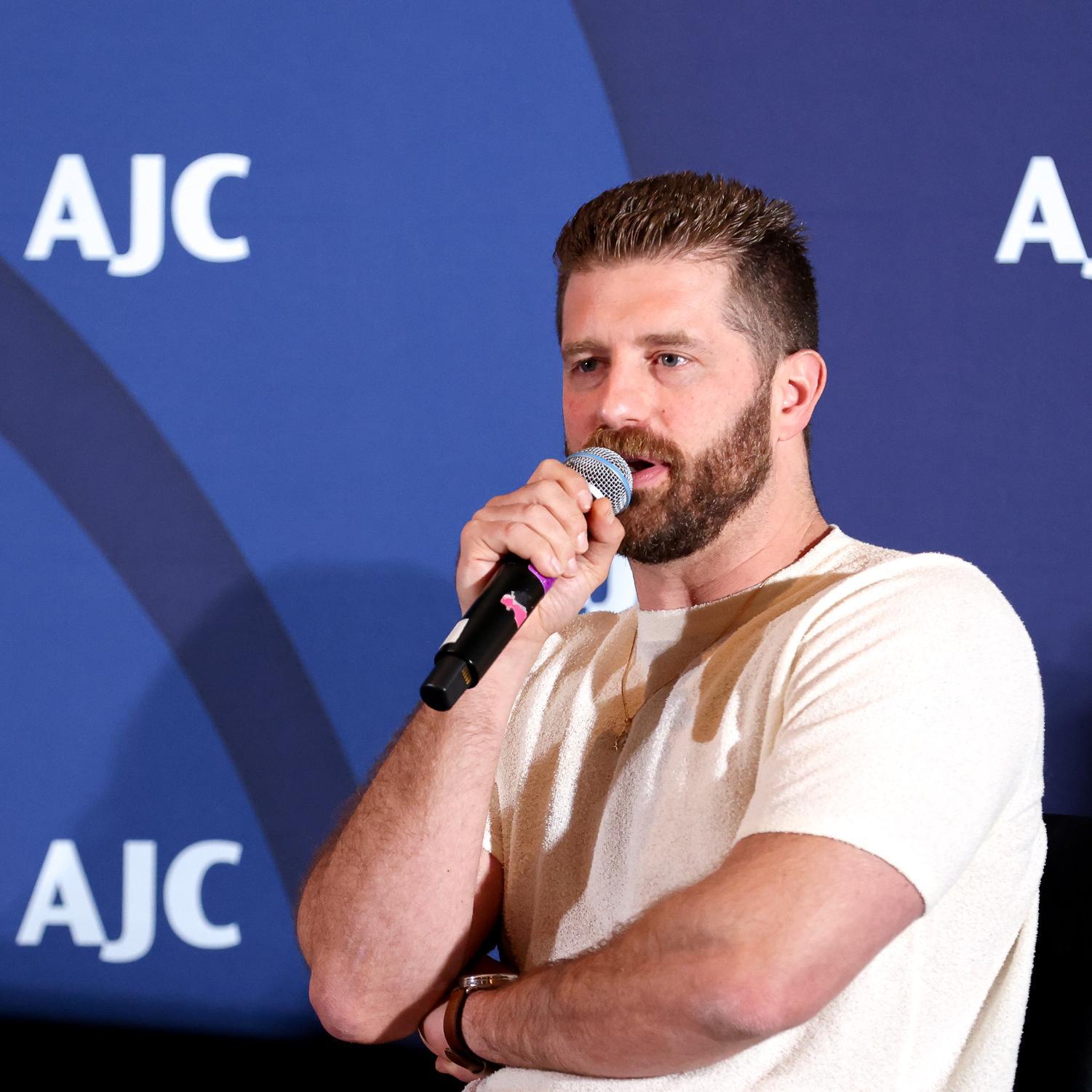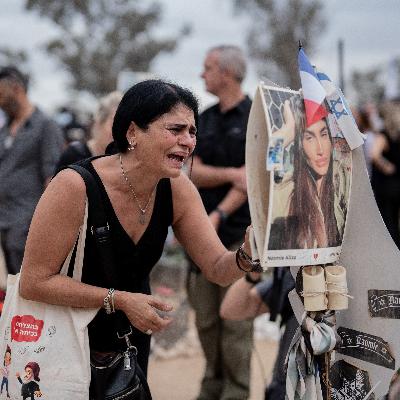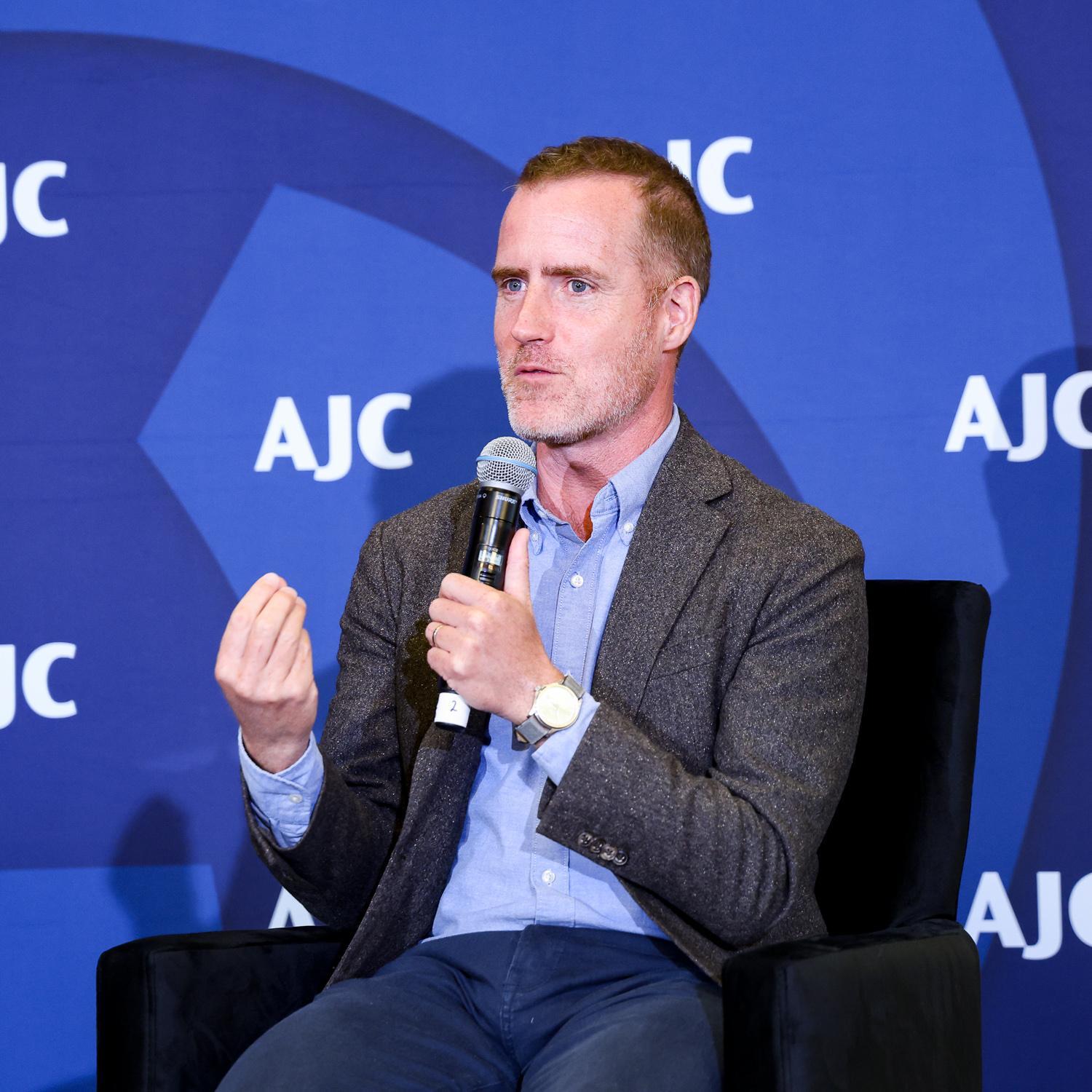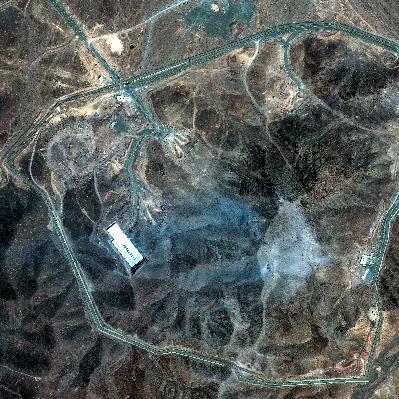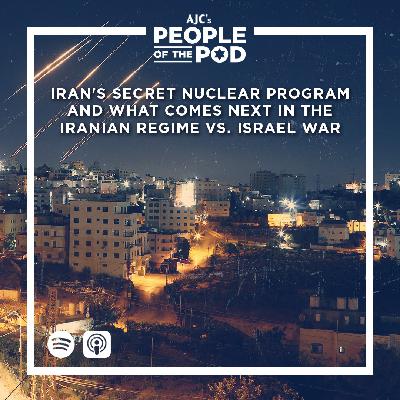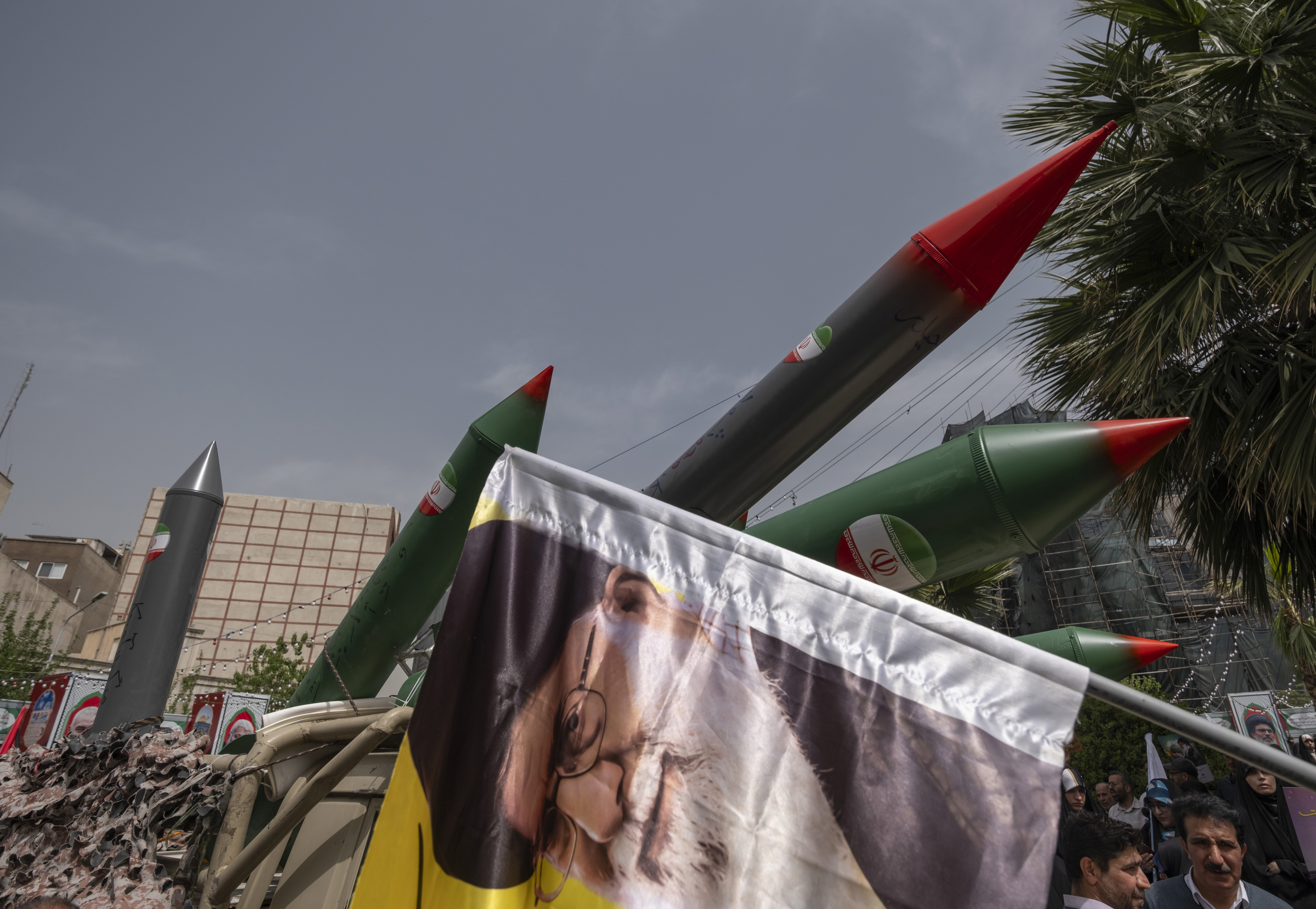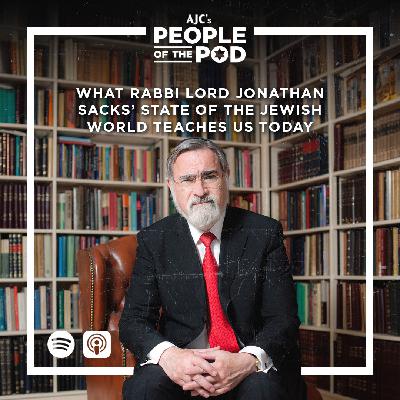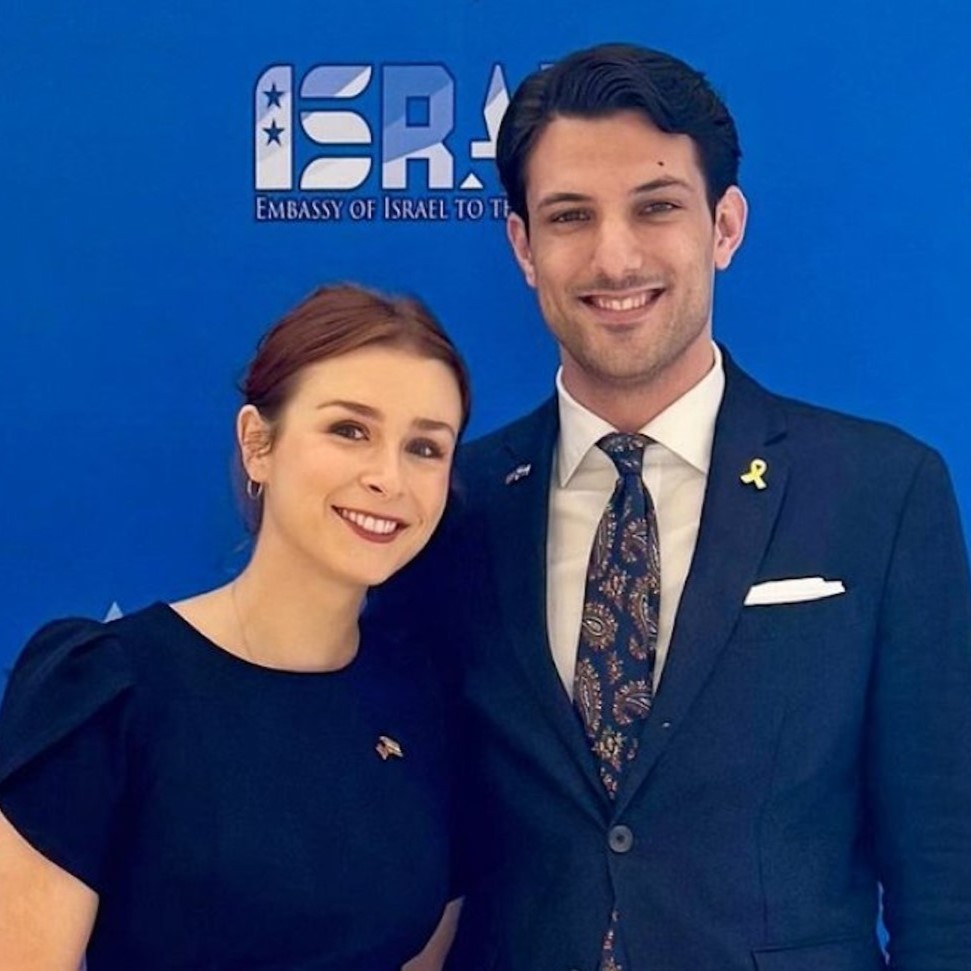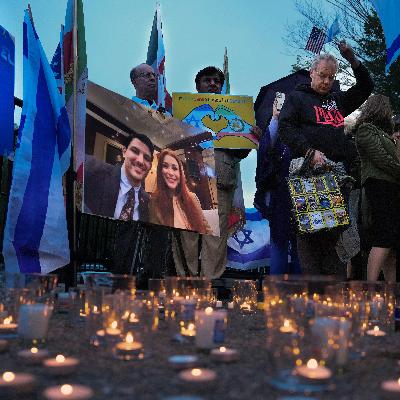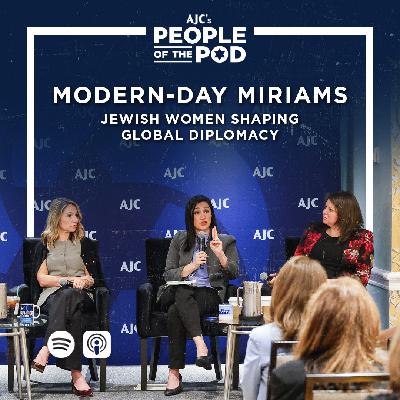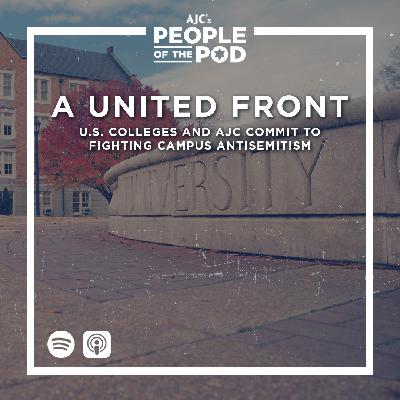Architects of Peace: Episode 3 - From the White House Lawn
Description
Dive into the third episode of AJC’s latest limited podcast series, Architects of Peace. Go behind the scenes of the decades-long diplomacy and quiet negotiations that made the Abraham Accords possible, bringing Israel, the United Arab Emirates, Bahrain, and later Morocco, together in historic peace agreements.
On September 15, 2020, the Abraham Accords were signed at the White House by President Trump, Prime Minister Netanyahu, and the foreign ministers of the UAE and Bahrain. In this third installment of AJC’s limited series, AJC CEO Ted Deutch and Chief Policy and Political Affairs Officer Jason Isaacson—who stood on the South Lawn that day—share their memories and insights five years later. Together, they reflect on how the Accords proved that peace is achievable when nations share strategic interests, build genuine relationships, and pursue the greater good.
*The views and opinions expressed by guests do not necessarily reflect the views or position of AJC.
Read the transcript: https://www.ajc.org/news/podcast/from-the-white-house-lawn-architects-of-peace-episode-3
Resources:
AJC.org/ArchitectsofPeace - Tune in weekly for new episodes.
The Abraham Accords, Explained
AJC.org/CNME - Find more on AJC’s Center for a New Middle East
Listen – AJC Podcasts:
Follow Architects of Peace on your favorite podcast app, and learn more at AJC.org/ArchitectsofPeace
You can reach us at: podcasts@ajc.org
If you’ve appreciated this episode, please be sure to tell your friends, and rate and review us on Apple Podcasts or Spotify.
Transcript:
Ted Deutch: It was a beautiful day and there was this coming together, this recognition that this was such an historic moment. It’s the kind of thing, frankly, that I remember having watched previously, when there were peace agreements signed and thinking that's something that I want to be a part of. And there I was looking around right in the middle of all of this, and so excited about where this could lead.
Manya Brachear Pashman: In September 2020, the world saw what had been years, decades in the making, landmark peace agreements dubbed the Abraham Accords, normalizing relations between Israel and two Arabian Gulf States, the United Arab Emirates and the Kingdom of Bahrain. Later, in December, they were joined by the Kingdom of Morocco. Five years later, AJC is pulling back the curtain to meet key individuals who built the trust that led to these breakthroughs.
Introducing: the Architects of Peace.
Announcer: Ladies and gentlemen, the President of the United States. Accompanied by the Prime Minister of the State of Israel; His Highness the Minister of Foreign Affairs and International cooperation of the United Arab Emirates, and the Minister of the Foreign Affairs of the Kingdom of Bahrain.
Manya Brachear Pashman: The guests of honor framed by the South Portico of the White House were an unlikely threesome. Two Arab foreign ministers and the Prime Minister of Israel, there to sign a pair of peace agreements that would transform the Middle East.
Donald Trump: Thanks to the great courage of the leaders of these three countries, we take a major stride toward a future in which people of all faiths and backgrounds live together in peace and prosperity.
There will be other countries very, very soon that will follow these great leaders.
Manya Brachear Pashman: President Trump’s team had achieved what was long thought impossible. After decades of pretending Israel did not exist until it solved its conflict with the Palestinians, Trump’s team discovered that attitudes across the Arab region had shifted and after months of tense negotiations, an agreement had been brokered by a small circle of Washington insiders.
On August 13, 2020, the United Arab Emirates agreed to become the first Arab state in a quarter century to normalize relations with Israel. Not since 1994 had Israel established diplomatic relations with an Arab country, when King Hussein of Jordan and Israeli Prime Minister Yitzhak Rabin signed a treaty, ending the state of war that had existed between them since Israel’s rebirth.
A ceremony to celebrate and sign the historic deal was planned for the South Lawn of the White House on September 15, 2020. Before the signing ceremony took place, another nation agreed to sign as well: not too surprisingly the Kingdom of Bahrain.
After all, in June 2019, Bahrain had hosted the Peace to Prosperity summit, a two-day workshop where the Trump administration unveiled the economic portion of its peace plan – a 38-page prospectus that proposed ways for Palestinians and Arab countries to expand economic opportunities in cooperation with Israel.
In addition to Bahrain, Egypt, Jordan, Morocco, Qatar, Saudi Arabia, and the UAE all participated in the summit. The Palestinians boycotted it, even as Trump’s senior advisor Jared Kushner presented plans to help them.
Jared Kushner: A lot of these investments people are unwilling to make because people don’t want to put good money after bad money. They’ve seen in the past they’ve made these investments, they’ve tried to help out the Palestinian people, then all of a sudden there’s some conflict that breaks out and a lot of this infrastructure gets destroyed. So what we have here is very detailed plans and these are things we can phase in over time assuming there’s a real ceasefire, a real peace and there’s an opportunity for people to start making these investments.
Manya Brachear Pashman: Now Israel, the UAE, and Bahrain would open embassies, exchange ambassadors, and cooperate on tourism, trade, health care, and regional security. The Accords not only permitted Israelis to enter the two Arab nations using their Israeli passports, it opened the door for Muslims to visit historic sites in Israel, pray at Al-Aqsa Mosque in Jerusalem, the third holiest site in Islam, and finally satisfy their curiosity about the Jewish state.
Before signing the accords, each leader delivered remarks. Here’s Bahrain’s Foreign Minister Abdullatif bin Rashid Al-Zayani.
Abdullatif bin Rashid Al-Zayani: For too long, the Middle East has been set back by conflict and mistrust, causing untold destruction and thwarting the potential of generations of our best and brightest young people. Now, I’m convinced, we have the opportunity to change that.
Manya Brachear Pashman: UAE’s Minister of Foreign Affairs Sheikh Abdullah bin Zayed Al Nahyan echoed that sentiment and also addressed accusations by Palestinian leadership that the countries had abandoned them. He made it clear that the accords bolstered the Emirates’ support for the Palestinian people and their pursuit of an independent state.
Sheikh Abdullah bin Zayed Al Nahyan: [speaking in Arabic]
Manya Brachear Pashman: [translating Sheikh Abdullah bin Zayed Al Nahyan] This new vision, he said, which is beginning to take shape as we meet today for the future of the region, full of youthful energy, is not a slogan that we raise for political gain as everyone looks forward to creating a more stable, prosperous, and secure future.
This accord will enable us to continue to stand by the Palestinian people and realize their hopes for an independent state within a stable and prosperous region.
Manya Brachear Pashman: The Truman Balcony, named for the first American president to recognize Israel’s independence, served as the backdrop for a few iconic photographs. The officials then made their way down the stairs and took their seats at the table where they each signed three copies of the Abraham Accords in English, Hebrew, and Arabic. The brief ceremony combined formality and levity as the leaders helped translate for each other so someone didn’t sign on the wrong dotted line.
After that was settled, they turned the signed documents around to show the audience. When they all rose from their seats, Prime Minister Netanyahu paused. After the others put their portfolios down, he stood displaying his for a little while longer, taking a few more seconds to hold on to the magnitude of the moment.
Benjamin Netanyahu: To all of Israel’s friends in the Middle East, those who are with us today and those who will join us tomorrow, I say, ‘As-salamu alaykum. Peace unto thee. Shalom.’ And you have heard from the president that he is already lining up more and more countries. This is unimaginable a few years ago, but with resolve, determination, a fresh look at the way peace is done . . . The blessings of the peace we make today will be enormous, first, because this peace will eventually expand to include other Arab state

